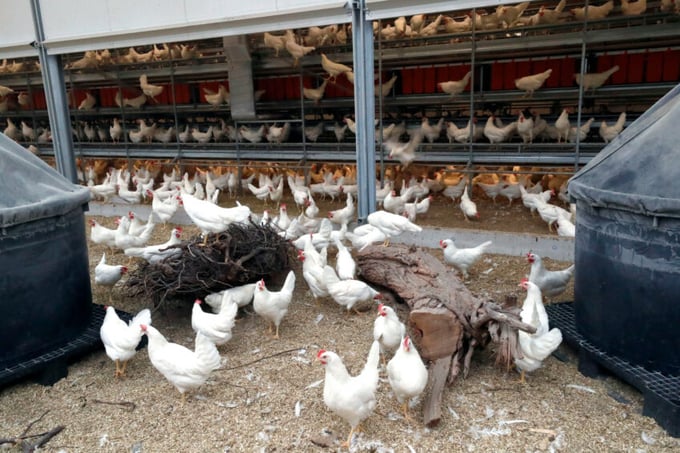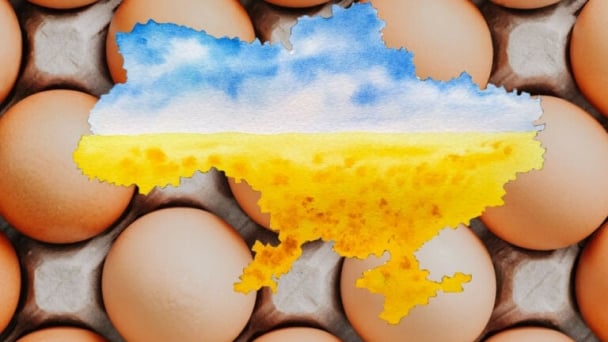May 21, 2025 | 03:57 GMT +7
May 21, 2025 | 03:57 GMT +7
Hotline: 0913.378.918
May 21, 2025 | 03:57 GMT +7
Hotline: 0913.378.918
However, Lidl has to import the eggs from Dutch producer Kipster because it could not find any Belgian poultry producer willing to start such an environmentally-friendly chicken farm, the company says.

Kipster, launched in 2017, has become a bright beacon for sustainable future-proof agriculture. Photo: Bert Jansen.
Lidl wants to introduce Belgian consumers to the climate-neutral eggs from Kipster, in its own words the most environmentally-conscious chicken farmer in the world. “Although the Kipster concept meets the aim of the government towards an increasingly sustainable agriculture, we couldn’t convince farmers or find suitable locations. We hope that, by offering these eggs on the Belgian market, we can help to set in motion the egg production in Belgium and redraw it towards sustainability,” says Isabelle Colbrandt, spokesperson for Lidl Belgie.
Kipster, launched in 2017, has become a bright beacon for sustainable future-proof agriculture, Lidl says. The main purpose is not to produce as many eggs as possible for the lowest possible price, but to produce eggs with respect to animal, nature and humans. The animals can roam freely both outdoors and indoors. All energy comes from solar panels while the chickens are fed food waste from nearby bakeries and other food companies.
Co-founder Ruud Zanders: “Commercial animal-friendly livestock farming is almost impossible. We do realise that. But we can offer our animals as much a good a life as possible. The instinct of the chicken is leading when designing our farms. In the past, chickens roamed freely on the farm yard and ate whatever they could find. That’s what we try to do, too.”
Zanders adds that all eggs from Kipster are white. “That’s better for the environment because they need far less feed.”
Kipster and Lidl Belgium have, in close cooperation, tried for 5 years to get the concept of environmentally-conscious farms off the ground in the country. After a long search, they had to give up the idea.
“We were very much charmed by the innovative project and started very quickly to talk about a farm in Belgium. We want to offer as many Belgian products in our shops as possible. If we can’t get them produced here, then we’re going to look for alternatives. Because we wanted the Belgian consumers to get to know these eggs, we now offer them from the Netherlands,” says Colbrandt.
Lidl stresses that the climate-neutral eggs, with a price tag of €2,26 for half a dozen, are not more expensive than the organic eggs it sells.
(PW)

(VAN) Oliyar, a prominent Ukrainian oil and fat manufacturer, has revealed plans to build a farm for 2.3 million laying hens in the Lviv region. The additional production quantities promise to change the competitive landscape of the egg market of the Eastern Europe region.

(VAN) On May 15, Ministry of Agriculture and Environment of Vietnam hosted the 'Connecting Vietnam - Germany agricultural, forestry and fishery trade' seminar in Berlin, Germany.

(VAN) In the face of counterfeit and imitation products, Khanh Hoa Salanganes Nest Company hopes for the prompt completion of the legal framework, strict enforcement against violations, and protection of the bird’s nest brand.

(VAN) Japan's efforts to lower the price of rice through the release of its stockpile may finally be making some progress, albeit at a snail's pace.

(VAN) U.S. tariffs are not only a 'shock', but also an opportunity for Vietnamese businesses to renew their mindset toward comprehensive development.

(VAN) As Bac Giang lychee enters the harvest season, Minister Do Duc Duy expects that the fruit will contribute greatly to agricultural exports due to standardized production and deep processing.

(VAN) Consumers have shown a preference for free-range eggs, but those farming systems are more vulnerable to biosecurity risks like bird flu.